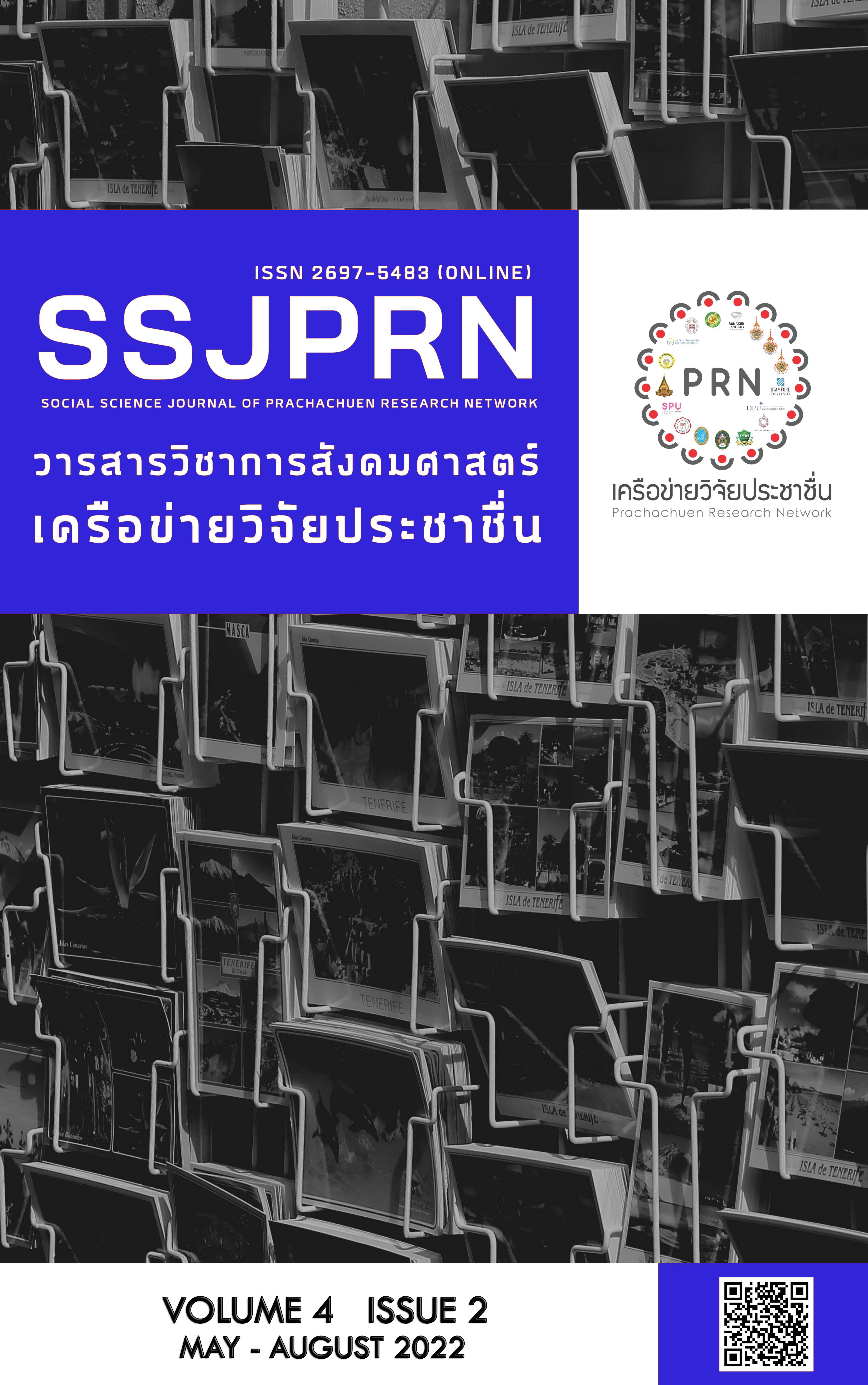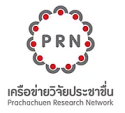การแก้ไขไวยากรณ์มีส่วนช่วยพัฒนางานเขียนในวิชาการเขียนของนักศึกษาที่เรียนภาษาอังกฤษเป็นภาษาที่สองหรือไม่
คำสำคัญ:
ข้อมูลย้อนกลับเพื่อแก้ไข, การแก้ไขไวยากรณ์, การเขียนภาษาที่สองบทคัดย่อ
อาจารย์และนักวิจัยหลายคนเชื่อว่าการแก้ไขไวยากรณ์ในงานเขียนของนักศึกษามีความสำคัญอย่างยิ่งในการพัฒนาทักษะการเขียน อย่างไรก็ตาม ยังมีอาจารย์และนักวิจัยจำนวนหนึ่งที่เชื่อว่าการแก้ไขไวยากรณ์นั้นไร้ประสิทธิภาพและยังเป็นภัยต่อการพัฒนาทักษะการเขียนในภาพรวม บทความนี้มีวัตถุประสงค์ที่จะนำเสนอแนวความคิดเรื่องการแก้ไขไวยากรณ์ในงานเขียนทั้งสองแนวทางนี้และกลยุทธ์รูปแบบต่าง ๆ ของการให้ข้อมูลย้อนกลับเพื่อแก้ไข นอกจากนี้ยังนำเสนอการให้ข้อมูลย้อนกลับเพื่อแก้ไขในบริบทของการสอนการเขียนในประเทศไทยด้วย เนื่องจากนักศึกษาหลายคนยังมีความรู้ที่จำกัดเรื่องโครงสร้างภาษาอังกฤษและองค์ประกอบการเขียนเรียงความ ทำให้ต้องพึ่งพาคำแนะนำจากผู้สอนเป็นอย่างมาก อย่างไรก็ตาม ผู้สอนควรคำนึงถึงระดับความสามารถทางภาษาของผู้เรียนเมื่อต้องเลือกใช้กลยุทธ์การให้ข้อมูลย้อนกลับเพื่อแก้ไขรูปแบบต่าง ๆ และกลวิธีการสอนรูปแบบอื่น ๆ เช่น การสอนไวยากรณ์เพิ่มเติม ก็ควรนำมาใช้ร่วมด้วยเพื่อช่วยให้ผู้เรียนใช้ภาษาได้อย่างถูกต้องแม่นยำและเพื่อช่วยพัฒนาทักษะการเขียนอีกด้วย
เอกสารอ้างอิง
Bitchener, J. (2008). Evidence in support of written corrective feedback. Journal of Second Language Writing, 17, 102-118.
Black, D., & Nanni, A. (2016). Written corrective feedback: Preferences and justifications of teachers and students in a Thai context. Journal of Language Studies, 16(3), 99-114.
Chandler, J. (2003). The efficacy of various kinds of error feedback for improvement in the accuracy and fluency of L2 student writing. Journal of Second Language Writing, 12, 267-296.
Ekanayaka, W. I., & Ellis, R. (2020). Does asking learners to revise add to the effect of written corrective feedback on L2 acquisition?. System, 94, 1-12.
Ferris, D. (2004). The “Grammar correction” debate in L2 writing: Where are we, and where do we go from here? (and what do we do in the meantime…?). Journal of Second Language Writing, 13, 49-62.
Ferris, D., & Roberts, B. (2001). Error feedback in L2 writing classes: How explicit does it need to be?. Journal of Second Language Writing, 10, 161-184.
Gray, R. (2004). Grammar correction in ESL/EFL writing classes may not be effective. Retrieved from http://iteslj.org/Technique/Gray-WritingCorrection.html.
Herlinawati, Saukah, A., Mukminatien, N., Isnawati, U., & Bastian, A. (2020). Do comprehensive and selective corrective feedback really work for L2 writing accuracy? An overview from Indonesian context. Humanities & Social Sciences Reviews, 8(1), 69-77.
Khumphee, S., & Yodkamlue, B. (2017). Grammatical errors in English essays written by Thai EFL undergraduate students. Journal of Education Mahasarakham University. 11(4), 139-154.
Lee, I. (1997). ESL learners’ performance in error correction in writing. System, 25, 465-477.
Lee, I. (2004). Error correction in L2 secondary writing classrooms: The case of Hong Kong. Journal of Second Language Writing, 13, 285-312.
Lee, I. (2005). Error correction in the L2 writing classroom: What do students think? TESL Canada Journal, 22(2), 1-16.
Moser, A. (2020). Written corrective feedback: The role of learner engagement. Cham: Springer.
Nguyen, T. T. L. (2019). A case study of teacher feedback on Thai university students’ essay writing. Journal of Language Studies, 19(2), 121-138.
Qosayere, I. (2015). The effect of grammar correction on students’ writing. International Interdisciplinary Journal of Education, 4(1), 257-261.
Sheen, Y. (2007). The effect of focused written corrective feedback and language aptitude on ESL learners’ acquisition of articles. TESOL Quarterly, 41(2), 255-283.
Sheen, Y., Wright, D. & Moldawa, A. (2009). Differential effects of focused and unfocused written correction on the accurate use of grammatical forms by adult ESL learners. System, 37, 556-569.
Tangkiengsirisin, S. & Kalra, R. (2016). Thai students’ perceptions on the direct vs. indirect written corrective feedback: A Thai university context. Arab World English Journal, 7(3), 161-176.
Truscott, J. (1996). The case against grammar correction in L2 writing classes. Language Learning, 46, 327-369.
Truscott, J. (1999). The case for “The case against grammar correction in L2 writing classes”: A response to Ferris. Journal of Second Language Writing, 8(2), 111-122.
Un-udom, S. (2019). The effectiveness of different written corrective feedback on Thai EFL learners’ writing. Journal of Humanities and Social Sciences Mahasarakham University, 38(1), 76-85.
ดาวน์โหลด
เผยแพร่แล้ว
รูปแบบการอ้างอิง
ฉบับ
ประเภทบทความ
สัญญาอนุญาต
ลิขสิทธิ์ (c) 2022 วารสารวิชาการสังคมศาสตร์เครือข่ายวิจัยประชาชื่น

อนุญาตภายใต้เงื่อนไข Creative Commons Attribution-NonCommercial-NoDerivatives 4.0 International License.
บทความที่ได้รับการตีพิมพ์เป็นลิขสิทธิ์ของวารสารวิชาการสังคมศาสตร์เครือข่ายวิจัยประชาชื่น







